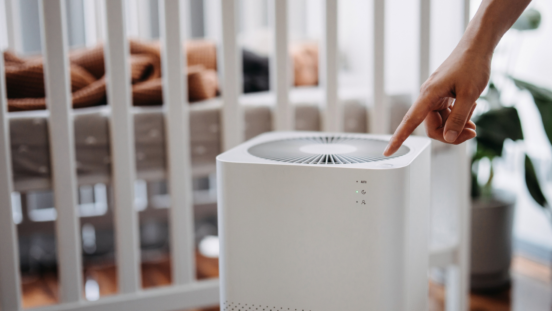The common cold in babies – emergency checklist

This illness is very common but can be a concern for parents of young bubs.
It’s horrible when your little one is unwell and extra hard when they’re too young to tell you what the matter is, what hurts and what soothes them.
One such recurrent childhood illness is the common cold – a viral infection of the upper respiratory tract. The virus is spread in droplets coughed or sneezed by others and by direct contact with sufferers. Children are particularly susceptible to colds as they have little natural resistance.
There are around 200 different strains of cold viruses circulating, so it’s likely that each time your child gets a cold they’re meeting that bug for the first time.
Scroll down to find out how to work out if it’s a cold and how to treat it.
Does my child have a cold? How can I treat it?
How can I tell if my child has a cold?
Today, the first thing that comes to mind when our children get sick is, COVID. Most colds run their course in three to 10 days. At the start of a cold, a baby or toddler will often feel hot and generally under the weather. His temperature may rise quickly. In the early stages of a cold, some children may vomit. Cold symptoms take two to three days to develop, after which sneezing is usually the first sign, followed by a blocked-up nose and a sore throat. After a few days, the nasal discharge may thicken and become green or yellowish.

“What can I do to treat my baby’s cold?”
There’s no cure for the common cold. Medicines only help to relieve the symptoms. Before giving any medicine read the instructions carefully, make sure it’s suitable for his age and never give more than the stated dose. Otherwise, plenty of fluids, rest and lots of cuddles are the best remedy. Babies should produce a wet nappy every three hours or so. If he stays dry for longer, it’s a sign that he’s not getting enough liquid.
- Feed babies little and often, every half-hour if necessary. If he’s not keen to feed, spoon-feed him with water or well-diluted juice, if he’s three months or older.
- If he’s running a temperature, lower it by sponging him with tepid water. Don’t smother him with extra clothes or bedding as he could overheat. If he is over three months, infant paracetamol will help to lower his temperature. If you have a toddler over the age of 2, a hypoallergenic pillow such as Clevamama ClevaFoam Toddler Pillow may help as it raises their head and helps clear sinuses.
- He’ll find it difficult to feed if his nose is blocked. Decongestant nose drops, suitable for babies over three months, given before feeds will help him to suck more comfortably. Snotty Boss Nasal Aspirator has been a gamechanger for many as it clears nasal passages of mucus in just 10 seconds. It has different size nozzles and can be used several times a day from birth.
- Use a steam vaporiser in your baby’s room overnight, or when they are napping. Euky Bear’s Warm Steam Vaporiser creates steam that increases the humidity in the room to combat the dryness of heating or air conditioning. Adding eucalytpus such as Euky Bear’s Sniffly Nose Inhalant is soothing as well as helping your tot breathe and sleep better.
- Teach him to blow his nose properly, if he’s old enough, one nostril at a time.
- Let him sleep longer or take extra naps during the day. Childs Farm Lavender & Moon Milk Sleep Mist may help your little one settle when they are feeling out of sorts.
Occasionally, a cold can lead to a cough or ear infection. Consult your GP if:
- A cough continues for more than 10 days
- He has a high temperature
- His breathing is fast or he’s short of breath
- It seems painful to cough
- He coughs up yellow, green or bloodstained mucus
- He has earache (this is often worse when they lie down) or appears to be slightly deaf
- He seems ill, lethargic or has no appetite after the first couple of days of a cold

Emergency checklist for a cold
Contact your GP if:
- His temperature is more than 37C
- He has a hoarse cough and is breathing heavily
- He cries for an unusually long time or in an unusual way, or seems to be in pain
- He keeps refusing feeds
- He is unusually hot, cold or listless
Seek urgent medical help if:
- He has convulsion, turns blue or very pale
- His breathing becomes quick, difficult or grunting
- He is unusually sleepy or hard to wake, or doesn’t seem to respond to you




